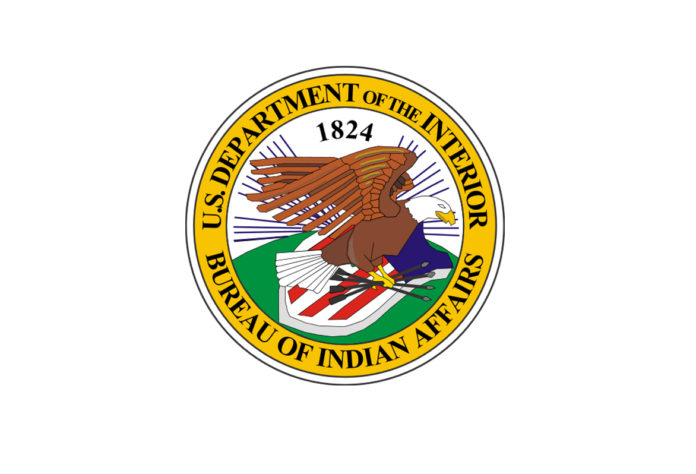WASHINGTON, D.C. – Indian Affairs has announced that land leasing regulations submitted by seven federally recognized tribal nations have been approved under the Helping Expedite and Advance Responsible Tribal Home Ownership (HEARTH) Act of 2012. The regulations were submitted by the Confederated Tribes of the Grand Ronde Community of Oregon, Eastern Shawnee Tribe of Oklahoma, Northern Cheyenne Tribe in Montana, Pascua Yaqui Tribe of Arizona, Pyramid Lake Paiute Tribe in Nevada, Tule River Indian Tribe in California, and Ysleta del Sur Pueblo in Texas.
The action restores the tribes’ authority to govern and manage the leasing of their Indian trust and restricted fee lands for certain purposes authorized under the Act without having such leases undergo additional review by the Secretary of the Department of the Interior.
“The HEARTH Act recognizes that tribal governments are best suited to determine when and in what ways their lands should be utilized for the benefit of their peoples,” said Assistant Secretary – Indian Affairs Bryan Newland. “Those with approved regulations are better positioned to act on their decisions without having to wait on the Department to process their leases. For tribes with approved regulations, the HEARTH Act is a way for them to achieve greater self-determination and sovereignty over their lands.”
The types of approved leasing regulations announced today are:
- Confederated Tribes of the Grand Ronde Community of Oregon: Leasing ordinance.
- Eastern Shawnee Tribe of Oklahoma: Agriculture leasing act, business leasing act, and residential leasing act.
- Northern Cheyenne Tribe, Montana: Business, wind and solar leasing ordinance.
- Pascua Yaqui Tribe of Arizona: Solar and renewable energy leasing ordinance.
- Pyramid Lake Paiute Tribe, Nevada: Tribal lands leasing ordinance.
- Tule River Indian Tribe, California: Leasing ordinance.
- Ysleta del Sur Pueblo, Texas: Real property leasing ordinance.
Given the types of leases authorized under the HEARTH Act, some tribes have more than one set of approved regulations or have ones waiting for approval. Those announced are among the 73 tribal nations that have received Secretarial approval for their leasing regulations, with another 16 awaiting action. Of the latter, six already have other approved HEARTH regulations. The list of tribes with approved regulations can be found on the BIA’s HEARTH Act web page.
The HEARTH Act, which amended the Indian Long-Term Leasing Act of 1955 (25 U.S.C. 415), promotes tribal self-determination by making a voluntary, alternative land-leasing process available to federally recognized tribes through the Interior Department. It restored the authority of those tribes to develop and implement their own laws governing the long-term leasing of Indian trust lands for agricultural, business, renewable energy, residential and other purposes.
Under the Act, the Secretary is authorized to approve tribal regulations if they are consistent with the Department’s leasing regulations and provide for an environmental review process that meets requirements set forth in the Act. Once a tribe’s HEARTH application is approved, it can negotiate and enter into leases without further approvals.
Tribes may submit HEARTH applications to BIA for agricultural and business leases of tribal trust lands for a primary term of 25 years, and up to two renewal terms of 25 years each. Leases of tribal trust lands for residential, recreational, religious or educational purposes may be executed for a primary term of up to 75 years.
The BIA Office of Trust Services’ Division of Real Estate Services administers the HEARTH Act tribal leasing regulations application review process. Interested tribes may submit their regulations by mail to:
U.S. Department of the Interior
Bureau of Indian Affairs, Office of Trust Services
Attention: Division of Real Estate Services
1001 Indian School Road NW, Box 44
Albuquerque, NM 87104
















































